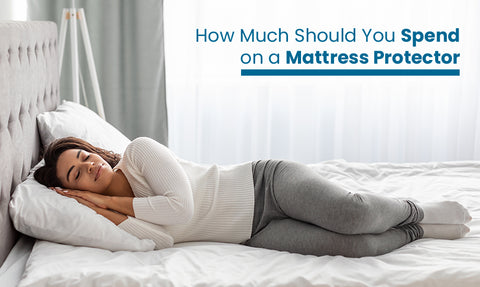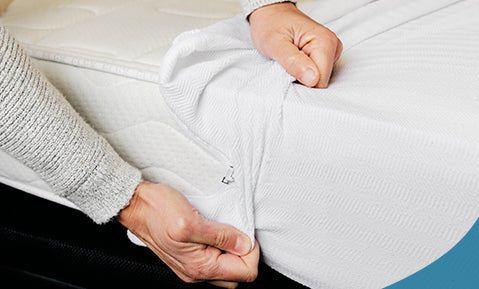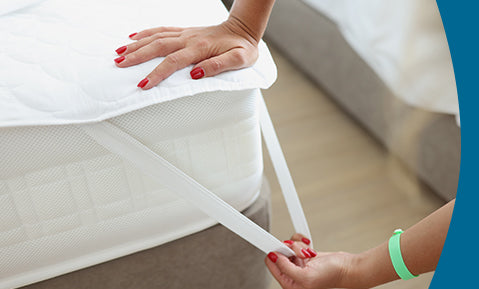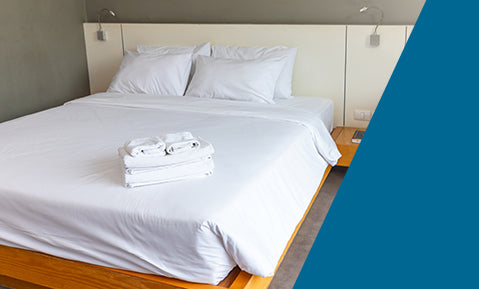
Sleep is the naturally occurring state of body and mind, characterized by altered consciousness, reduced muscle activity, and inhibition of all voluntary muscles throughout speedy eye movement i.e. REM sleep and reduced interactions with surroundings.
Humans could suffer from various sleep disorders and dyssomnias like sleep disorder, sleep disorder, narcolepsy, and sleep apnea; parasomnias like somnambulism and fast eye movement, sleep behavior disorder bruxism, and biological time sleep disorders.
Why is Good Sleep Important?

Stronger Immune System
Sleep supports the body to repair, regenerate, and recover. The system is not an exception to the current relationship. Some analysis shows, however, higher sleep quality will facilitate the body repel infection.
Improve Memory
Your mind is astonishingly busy when you snooze. Getting adequate sleep helps you process new information once you wake up, and sleeping after learning can strengthen this information into memories, enabling you to store them in your brain.
Keep you away from Depression
Lack of sleep will contribute to depression. A good night’s sleep will significantly facilitate a moody person’s anxiety. You get additional emotional stability with good sleep.
If you think that the long hours placed in throughout the week are the reason for your anxiety or impatience, then sleep cannot be done only on the weekend.
However, if you sleep additionally on the weekends, you merely aren’t sleeping enough during the week, you should find and make a balance in your sleeping pattern.

Lower Stress
Health stress and sleep are nearly one of the same things, and each affects cardiovascular health.
Sleep will undoubtedly cut back levels of stress, and in addition to that, folks will have higher management of their pressure level. It is believed that sleep affects sterol levels, which plays a significant role in cardiomyopathy.
Sleep Helps in Losing Weight
Many researchers have found that dieters WHO were well untired lost additional fat, i.e.56% of their weight loss, than those that were sleep underprivileged.
Dieters within the study conjointly felt additional hunger after they got less sleep.
Sleep and metabolism are controlled by constant sectors of the brain, and when you are asleep, your hormones go up in your blood, and people with the same hormones get the craving for eating.
Sharpen Attention
A lack of sleep may end up in ADHD-like symptoms in youngsters. Kids don’t react to constant lack of sleep deprivation as adults do. Whereas adults get asleep, youngsters tend to induce overactive.”
According to a 2009 study within the journal, a medical specialty found that youngsters aged between seven and eight get eight hours of sleep an evening were overactive, inattentive, and impulsive.
Improves Memory
Researchers don’t totally perceive why we have a tendency to sleep and dream. However, they have found that sleep plays a vital role in an exceeding method referred to as memory consolidation.
During sleep, your body is also resting. However, your brain is busy processing your day, creating connections between events, sensory input, feelings, and reminiscences.
Deep sleep could be a vital time for your brain to create reminiscences and links, and obtaining additional quality sleep can assist you to keep in mind and method things higher.

Makes you Live Longer
Getting the proper quantity of sleep has been shown to enhance longevity. A meta-analysis of sleep studies checked out the impact of hours of sleep on the period. This analysis discovered that sleeping but half a dozen hours per night causes you to have a twelve-tone system addiction, probably to suffer premature death, whereas sleeping over nine hours comes with a half-hour increase in premature death.
Lack of sleep can even impact longevity by increasing the probability that you simply can suffer a fatality.
Neglecting your sleep is not at all good for you and, as proven, lack of sleep holds you back from completing your health goals.
Improves Athletic Performance
It seems that the quantity of sleep you get has even as abundant an impact on sports performances. Many researchers examined the result of sleep on a gaggle of Basketball players. Study showed that receiving sufficient amounts of sleep improved the player’s speed, accuracy, latency, and general feelings of well-being.
In addition to that, sleep deprivation negatively impacts our metabolism, which can not solely hinder your attempt to turn through exercise. However, it really reduces your body’s ability to use aldohexose as energy to fuel your workouts.
Reduces Risk of Kind II Polygenic Disease
Chronically under-sleeping raises your risk of developing kind II polygenic disease by touching your body processes sugar, however.
Studies have proved that sleep deprivation negatively impacts aldohexose metabolism, whereas it reduces hypoglycemic agent sensitivity, leading to high glucose.

Regulates Mood, Improve Social Interaction
Changes to our mood are one of the foremost apparent side-effects of suboptimal sleep, and plenty of folks have initial-hand expertise with irritability, hyperbolic frustration, and even symptoms of depression once overtired.
Sleep plays an essential role in our capability to control positive and negative emotions and will increase impulsivity. Indeed sleep deprivation truly lowers our responsiveness to emotional stimuli.
Science has shown that being sleep deprived indeed reduces our ability to choose vital social cues and respond fitly to them, like recognizing facial expressions.
Takeaway
Sleep is essential for everyone to work day to day activities and to live a happy, healthy, and longer life. It’s crucial to follow a good sleep routine and sleep as much as your body requires.
Sleep Cycle for all Age groups
Our sleep patterns changes based on our age:
- Newborns (0-3 months) need 14–17 hours of good sleep.
- Infant (4–12 months) needs 12-16 hours of good sleep.
- Toddler (1–2 years) needs 11-14 hours of good sleep.
- Preschool (3-5 years) needs 10-13 hours of good sleep.
- School-going children of age (6-12 years) need 9-12 hours of good sleep.
- Teen (13-18 years) needs 8-10 hours of good sleep.
- Adults of Age (18-60 years) need 7 or more hours of good sleep.
- Old age (61 and more) needs 7-9 hours of sleep.












